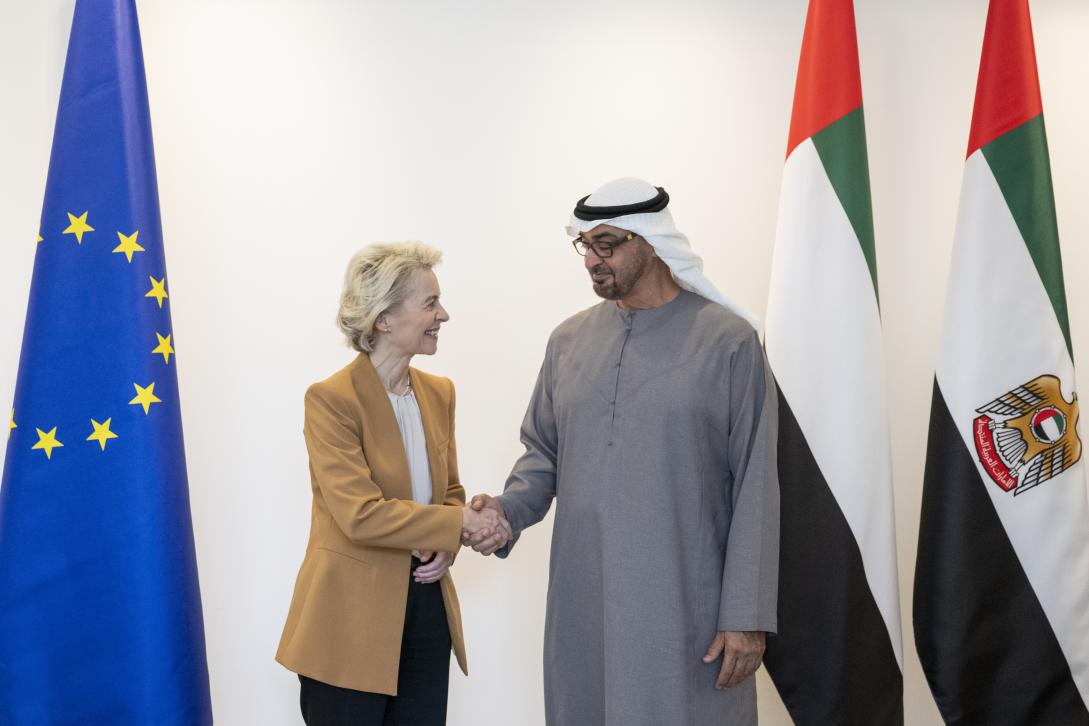Writing a new chapter in EU-UAE relations

Diplomacy often unfolds gradually. But every so often, there are moments when the pace of change accelerates, when relationships evolve, trust deepens and opportunities align. The ties between the EU and the UAE are in such a moment.
When I arrived in Abu Dhabi two years ago, I sensed great potential in our partnership. However, what we have witnessed since then has gone far beyond potential – it has been a true transformation. Today, the relationship between the EU and the Emirates is entering a new phase: more strategic, more comprehensive and more aligned.
This new chapter is grounded in shared values and joint priorities. At a time when fears are rising and geopolitical tensions are sharpening, the EU and the UAE are choosing a different path, one of partnership, bridge building and opportunity.
In April, President Sheikh Mohamed and European Commission President Ursula von der Leyen agreed to launch negotiations on an EU-UAE Free Trade Agreement, an agreement between the world´s largest economic bloc and a global trading hub. This historic event sets the stage for expanded economic ties across goods, services, digital trade and strategic sectors such as renewable energy, green hydrogen and critical raw materials.
The numbers already speak volumes. The EU is the UAE’s first investment partner and second-largest global trading partner. Our mutual investments amount to €328 billion ($382.86 billion). A future Free Trade Agreement should unlock untapped mutual benefits. But the potential of our relationship goes well beyond the existing context. For example, the EU and the UAE are currently negotiating a Strategic Partnership Agreement that will expand our co-operation to cover traditional and emerging sectors such as space, AI, cybersecurity, education, climate innovation, sustainability and much more, providing huge opportunities for further economic co-operation.
Our political engagement has also grown stronger through regular political and parliamentary exchanges. In June, the President of the European Parliament, Roberta Metsola, for the first time addressed the Federal National Council in Abu Dhabi. Soon thereafter, and following months of joint efforts, the European Parliament decided to remove the UAE from its list of high-risk third countries with strategic deficiencies in their anti-money-laundering legislation. This recognition of the progress made by the UAE in this area also stands as a testament to the enduring resilience and adaptability of European democracy. I am confident that our co-operation on this issue will continue to strengthen.
Nevertheless, diplomacy is not about progress only – it is also about facing challenges together. We are both navigating an increasingly volatile global landscape. War looms at our doorstep, and as Ms Metsola stressed during her speech before the FNC: “History has taught us that when the world feels like it is on fire, it is not enough to contain the flames. We need to extinguish them.”
Our dedication to peace and co-existence also guides our approach to the Middle East. The EU is deeply concerned by the ongoing conflicts in the region, particularly the devastating humanitarian toll they are taking. The war in Gaza has brought appalling suffering to Palestinian civilians and continuous uncertainty for Israeli hostages and their families. The EU and UAE share a common goal: to restore the ceasefire that can lead to a just and lasting peace. The Emirates has played a vital role as a partner for diplomacy, humanitarian assistance and regional stability. We continue to be firm advocates for a two-state solution, based on mutual recognition and peaceful co-existence.
As I reflect on the past two years, I see more than just milestones reached. I see a relationship that is growing in confidence and clarity. This is just the beginning of a new chapter, one marked by openness, ambition and mutual respect. The path ahead is full of potential, and I look forward to shaping it alongside our Emirati partners, with the same spirit of co-operation that has brought us this far.
Read on The National.
